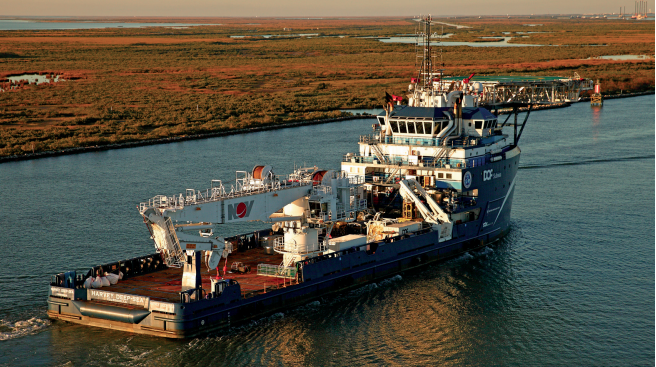Early last week as Hurricane Dorian churned west, the Offshore Marine Service Association (OMSA) surveyed its members to see what vessels could do relief work — a move designed to let the Federal Emergency Management Agency (FEMA) and the Maritime Administration (Marad) know in advance exactly what was available before any Jones Act waivers were considered.
“We didn’t know what would be needed,” OMSA president Aaron Smith said Wednesday. So they asked operators about everything from berthing and communication capabilities to firefighting, medical response and search and rescue.
“We had at least 40 vessel responses. They are all listed as active and available,” he said. “We have provided the list to Marad and FEMA, so that they can make more informed decisions.” It will be up to the agencies to contact the companies.
Emergencies often prompt Jones Act opponents to push for waivers to the law requiring cargo from one U.S. port to another be moved on U.S.-built and -crewed vessels. When Hurricane Maria devastated Puerto Rico two years ago, for example, a chorus of critics who had long sought an exemption for the island demanded the law be suspended.
Jones Act supporters pointed out that plenty of U.S. ships were delivering supplies, but conditions on land made moving cargo out of the port almost impossible.
As this hurricane season reaches its peak, a Coast Guard advisory panel is expected to soon issue an update to its initial recommendations for how offshore supply vessels, crewboats and other vessels in the energy industry can be safely put to work in disaster relief.
The proposal includes creating a new “response, restoration, and recovery vessel” Certificate of Inspection (COI) endorsement that would allow operators to get preapproval of vessels that would be available to help after hurricanes or other disasters, according to OMSA.
After Hurricane Maria, several OSV operators based in Louisiana sought emergency approvals from the Coast Guard to allow them to haul relief supplies to Puerto Rico and between ports on the island. They needed approval to deviate from the vessels’ COIs, but “due to an assortment of circumstances, this volunteer effort encountered a variety of challenges,” according to a task statement outlining the problem for the National Offshore Safety Advisory Committee (NOSAC).
Another recommendation would modify the Coast Guard’s definition of “international voyage” to clarify that U.S.-flag vessels are not on an international voyage when they sail between the U.S. mainland and Puerto Rico or between the island’s ports.
NOSAC is a panel of advisors drawn from the offshore energy industry, and OMSA proposed they set up a subcommittee to study the problem. The Coast Guard agreed and in March NOSAC approved the subcommittee’s recommendations.



.JPG.small.400x400.jpg)

